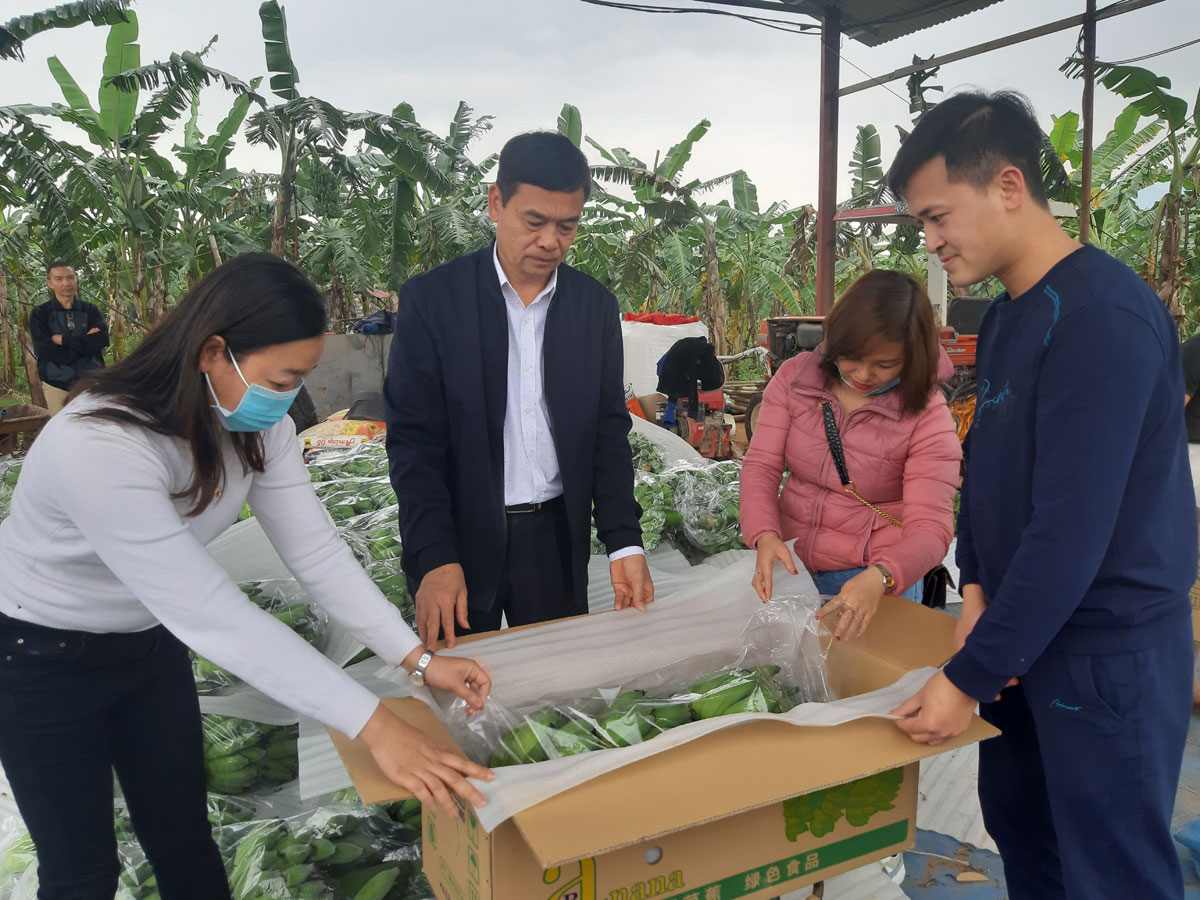


 A member of co-operative packs banana for
exports.
A member of co-operative packs banana for
exports.
The co-operative specialising in agriculture has about 25 ha under banana trees, yielding 750 tonnes per year. In 2021, it is set to export 800 tonnes of the fruit to China.
The production, processing and packaging are carried out under VietGap standards and ensure food safety.
The issuance of codes for fruit-growing area is stipulated in Article 64 of the Law on Crop Production (Law No. 31/2018/QH14), which took effect on January 1, 2020. To receive such codes, the growing areas must satisfy various requirements.
Plants must be grown in suitable areas and locatable. They have to be of the same variety and taken care of under identical process to be able to resist diseases.
Farm log is needed to keep track on the use of pesticide. The areas are also recognised to have applied Good Agricultural Practices (GAP).
Alongside codes for growing areas, there are codes for packaging facilities, a requirement for phytosanitary implementation.
Some localities in the north have been successful in using the codes for areas growing longan, lychee, banana, watermelon and dragon fruit for exports, namely Hai Duong and Bac Giang.
In Hoa Binh, activities on the granting of codes for growing areas and packaging sites have been piloted since 2019.
To date, nine zones with a combined area of 76.3 ha and seven packaging facilities have received such codes. In 2020, some 120 tonnes of Son Thuy longan in Kim Boi district and 180 tonnes of banana of Hoa Binh city were officially shipped to the northern neighbour./.